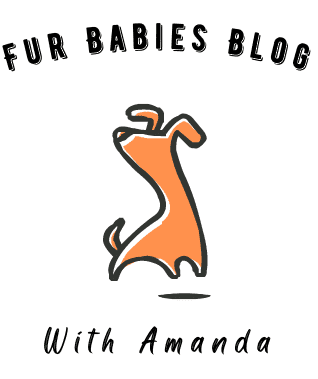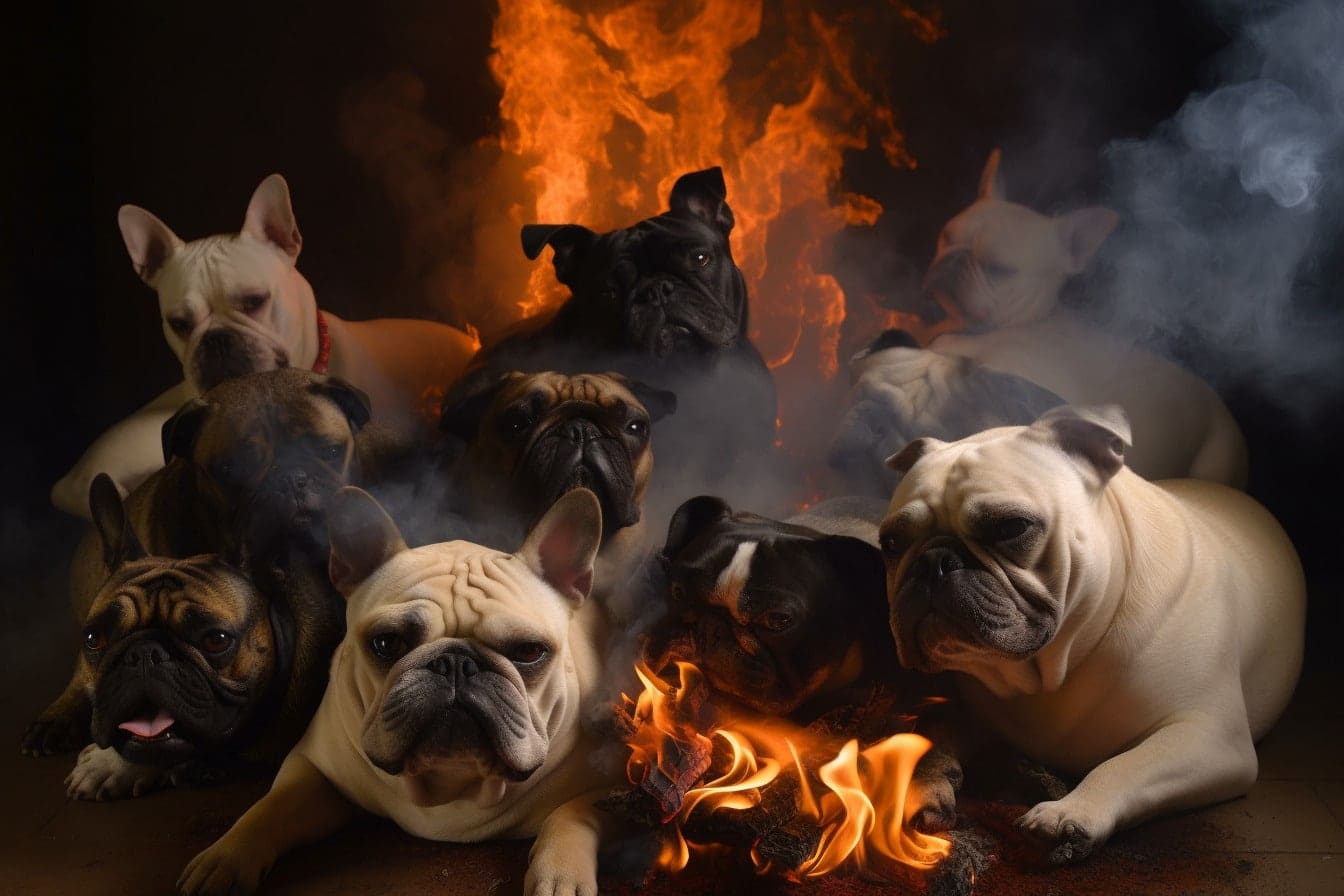Dog Snoring Breeds from Hell
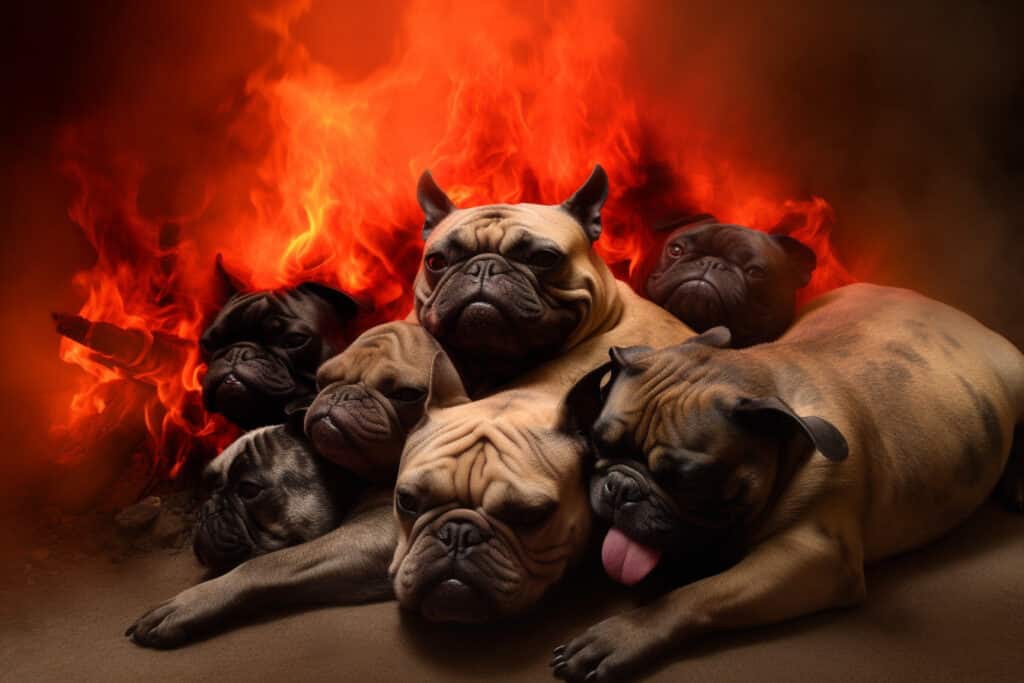
Some may argue that a dog snoring is a natural part of dogs sleeping, but it doesn't mean we can't do something about our beloved pets who snore like freight trains.
In this article, we'll dive into the world of ‘dog snoring breeds from hell' – those specific breeds known for their tendency to saw logs louder than a chainsaw convention.
But fear not! We won't just identify these breeds; we'll also provide tips and solutions on how to help them (and you) enjoy a more peaceful slumber.
Top Dog Breeds Prone to Snoring: Know the List
If you've ever experienced the adorable yet sometimes alarming sound of a dog snoring, you know it can be quite an interesting phenomenon. As a French Bulldog owner myself, I'm here to shed some light on which breeds are more prone to this amusing quirk and why that is.
Many people don't realize that certain dog breeds are actually predisposed to snoring due to their unique facial structures. Known as brachycephalic breeds, these dogs have shorter muzzles and noses than other types of dogs, making them susceptible to various breathing issues. Some popular examples of such breeds include French Bulldogs, English Bulldogs, Boston Terriers, Shih Tzus, and Chow Chows.
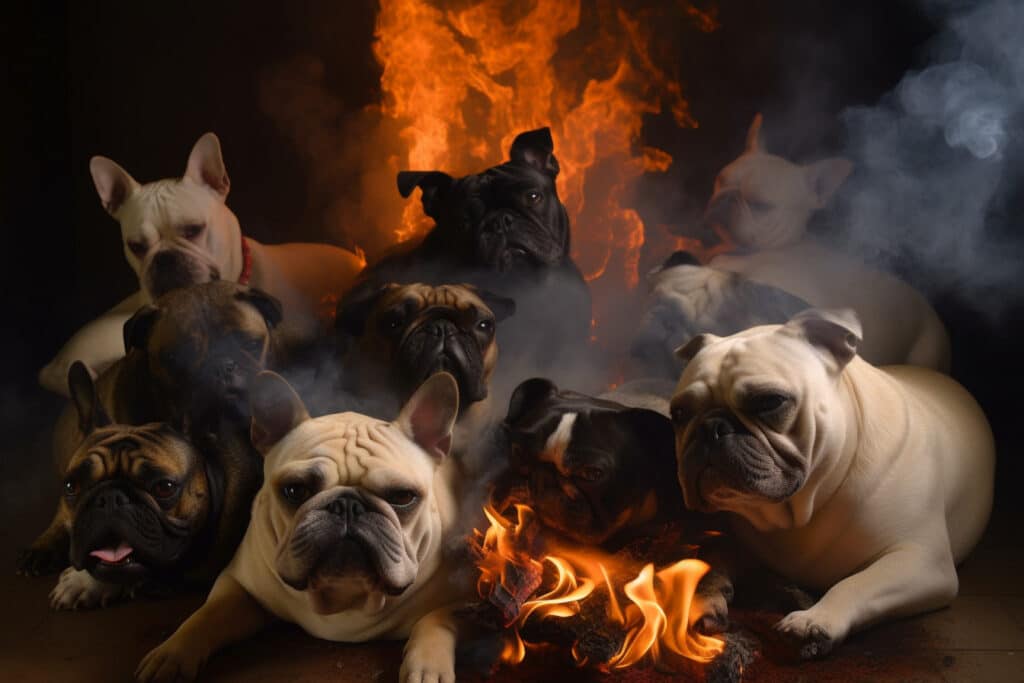
Dog snoring in these brachycephalic breeds often stems from what's known as Brachycephalic Airway Syndrome (BAS). This condition arises from the combination of their short nasal passages and elongated soft palates pressing against their airways during sleep or even while awake.
While our pets may seem perfectly content with their noisy night-time habits – even appearing downright happy about it – it's essential for pet parents like yourself to understand that there could be underlying causes contributing to this issue. With this knowledge at hand, we can better serve our four-legged companions by providing them with the care they need and deserve!
Now that we've established which dog breeds are most likely to snore let's delve deeper into uncovering common causes behind this intriguing occurrence.
Uncovering The Common Causes of Dog Snoring
I understand that dog owners may be concerned or even alarmed when their pets snore. It's important to uncover the common causes of dog snores in order to address any underlying issues and provide relief for both you and your furry friend.
Brachycephalic dogs, those with short noses and flat faces such as French Bulldogs, Boston Terriers, and Shih Tzus, are known for their predisposition to snoring due to inherent physical features like elongated soft palates and narrower airways.
However, other factors can also contribute to this noisy night-time habit.
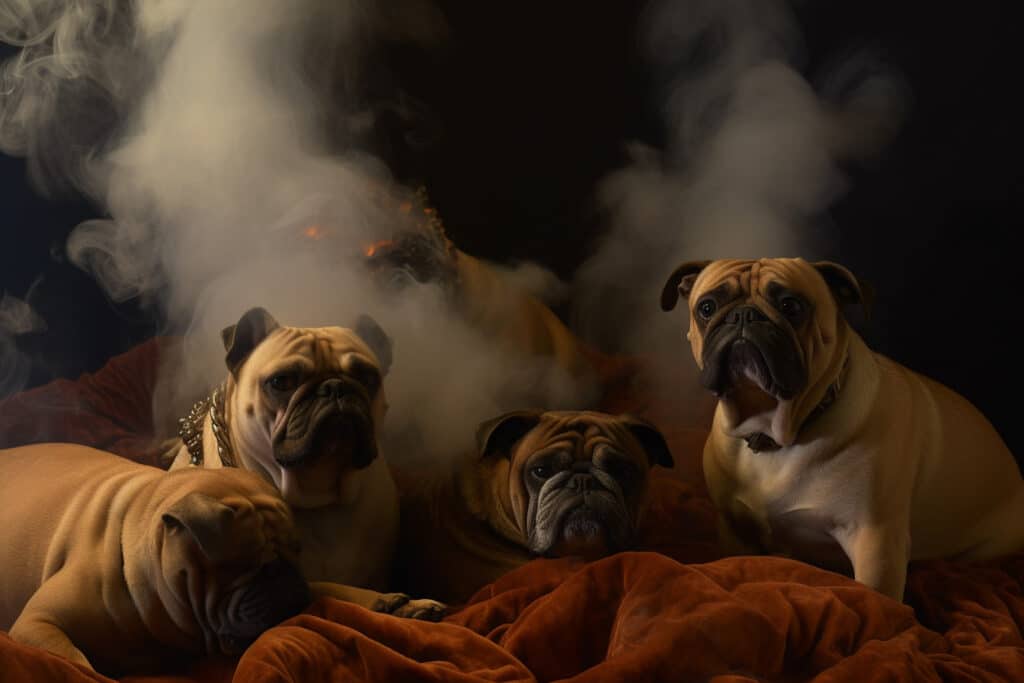
Sleeping position plays a significant role in how loudly a dog snores; certain positions may cause more constriction of the airway leading to louder snores. Health problems related to weight gain can exacerbate snoring by adding pressure on the throat muscles which narrows the space available for airflow. Meanwhile, dental issues could lead to upper respiratory infections – another trigger for snoring.
Furthermore, brachycephalic syndrome is a condition specific to breeds with shortened skulls where multiple abnormalities occur in the upper respiratory system causing severe breathing difficulties during sleep. Addressing these potential health concerns will not only improve your pet's overall well-being but also reduce excessive snoring so that everyone can enjoy peaceful slumber once again.
Breed-Specific Factors Contributing to Snoring
One group of dogs in particular stands out for their increased propensity for snoring. Brachycephalic breeds have short skulls, short noses, and sometimes even short snouts – all contributing factors to a higher likelihood of snoring. These anatomical features can lead to an elongated soft palate, which obstructs the airway during sleep and causes the characteristic rumbling sounds.
Some common brachycephalic breeds include:
1. English Bulldogs
2. Pugs
3. French Bulldogs
These charming pups often steal our hearts with their adorable, squished faces, but those same endearing qualities also contribute to their noisy slumber habits. It is essential not only to be prepared for your dog’s snoring but also mindful of their unique needs when addressing potential health concerns related to breathing difficulties or upper respiratory infections.
By understanding how breed-specific factors influence your dog's snoring patterns, you'll be able to provide them with the best care possible while ensuring they get the restful sleep they need. With knowledge comes power – so keep learning about what makes your four-legged companion tick!
Identifying The Warning Signs: When Snoring Signals Trouble
As a devoted dog lover, it's essential to be aware of the warning signs that your dog snoring might indicate more significant issues than simply disrupting your peaceful slumber. While snoring can seem cute and endearing at times, it could also point towards respiratory problems or breathing difficulties in our furry friends.

For instance, if you notice that your pooch is making louder-than-usual snoring sounds or displays difficulty breathing even when awake, these could be red flags signalling potential health concerns.
One such condition to be mindful of is Brachycephalic Obstructive Airway Syndrome (BOAS), which primarily affects breeds with shorter snouts like Pugs, Bulldogs, and Shih Tzus. This disorder occurs due to their unique facial structure, leading to narrowed nasal passageways and other upper airway abnormalities – resulting in noisy breathing and frequent bouts of snoring.
Recognizing early symptoms of BOAS can help you take timely action by consulting a veterinarian who may suggest effective solutions: how to cure snoring in your dog while addressing any underlying medical conditions contributing to the problem. Keep an eye out for excessive panting, restlessness during sleep, coughing or gagging as they may signify worsening respiratory troubles so that you can ensure your beloved pet enjoys a comfortable and healthy life.
Effective Solutions: How to Cure Snoring In Your Dog
Did you know that approximately 80% of dog snoring breeds suffer from some form of upper airway obstruction? As a pet owner, it's essential to find effective solutions to cure snoring in your furry friend and ensure their well-being. Thankfully, there are several ways you can help your canine companion breathe easier at night.
Here are four key strategies to consider when addressing your snoring dog:
1. **Help them maintain a healthy weight** – Excess weight is one of the primary causes of breathing issues in dogs, as excess fat can put pressure on the upper airway. Ensure that they're consuming an appropriate diet and engaging in regular exercise to keep those extra pounds off.
2. **Address underlying health conditions** – Some medical concerns may contribute to your dog's snoring, such as brachycephalic syndrome or allergies. Consult with a veterinarian regarding any potential health issues affecting your pooch.
3. **Provide proper sleeping arrangements** – A comfortable bed and sleep environment can go a long way in minimizing snoring for your pup. opt for an elevated bed designed specifically for dogs who struggle with respiratory problems.
4. **Implement routine grooming practices**- Regular grooming sessions will prevent dust and allergens from accumulating around the nasal passage, which could potentially trigger breathing difficulties and snoring.
By implementing these tips into your daily routine, you'll be taking significant steps towards improving the quality of life for both you and your snoozing canine companion.
Now let's move forward by exploring lifestyle changes that can further alleviate snoring in dog breeds…
Lifestyle Changes to Alleviate Snoring In Dog Breeds
Now that we've explored some effective solutions to cure snoring in your dog, let's delve into the lifestyle changes you can make to alleviate this issue further. I know how important it is for pet owners to consider their furry friend's well-being and overall health.
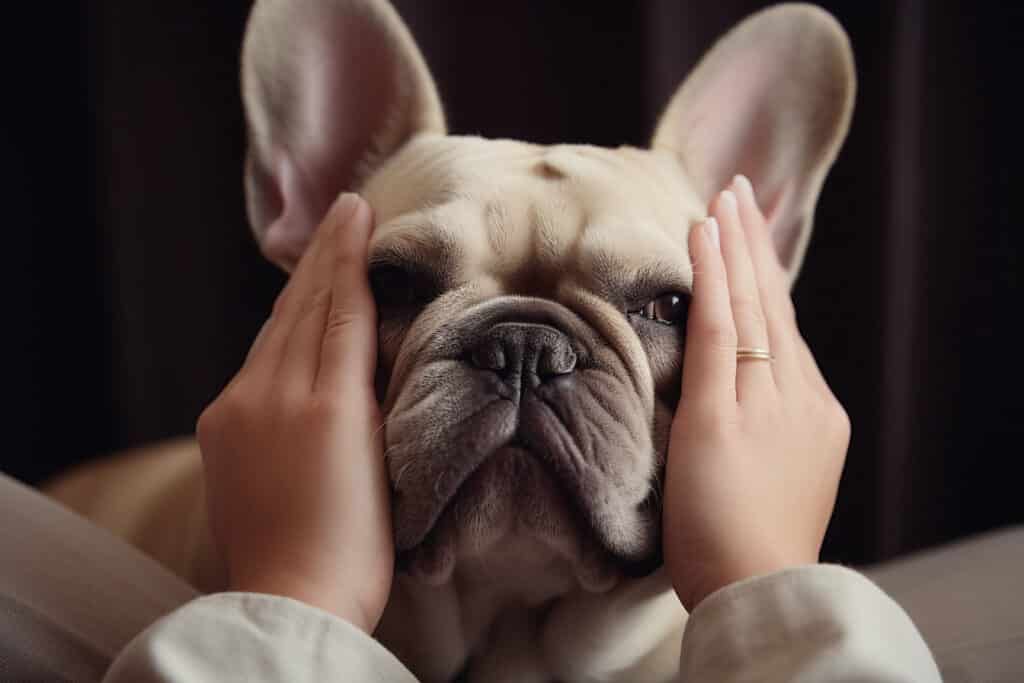
Addressing your dog's snoring problem not only helps ensure peaceful nights but also contributes towards their long-term happiness.
Loud snoring in brachycephalic breeds might be reduced by helping them maintain a healthy weight through proper diet and exercise. Overweight dogs are more susceptible to respiratory problems due to added pressure on airway passages, so encouraging weight loss could significantly decrease the intensity of your dog’s snores.
Another essential factor to consider is your pet's sleeping position; elevating their head using pillows or specialized beds can help open up nasal passages and reduce obstruction during sleep. Making these simple yet impactful lifestyle changes will undoubtedly serve as an additional support system in combating your precious pup’s loud night-time serenades!
The Impact of Snoring on Your Dog's Overall Health
It's important to understand the impact that dog snoring can have on your furry friend's overall health. While some snoring may be harmless or simply due to their breed characteristics, in other cases, it could indicate underlying health issues that need attention.
Conditions such as sleep apnea and stenotic nares (narrowed nasal passageways) are common reasons for snoring in dogs and can lead to breathing difficulties if left untreated. Additionally, excess fat around the neck and throat area may also contribute to snoring by obstructing air flow through the nasal passages.
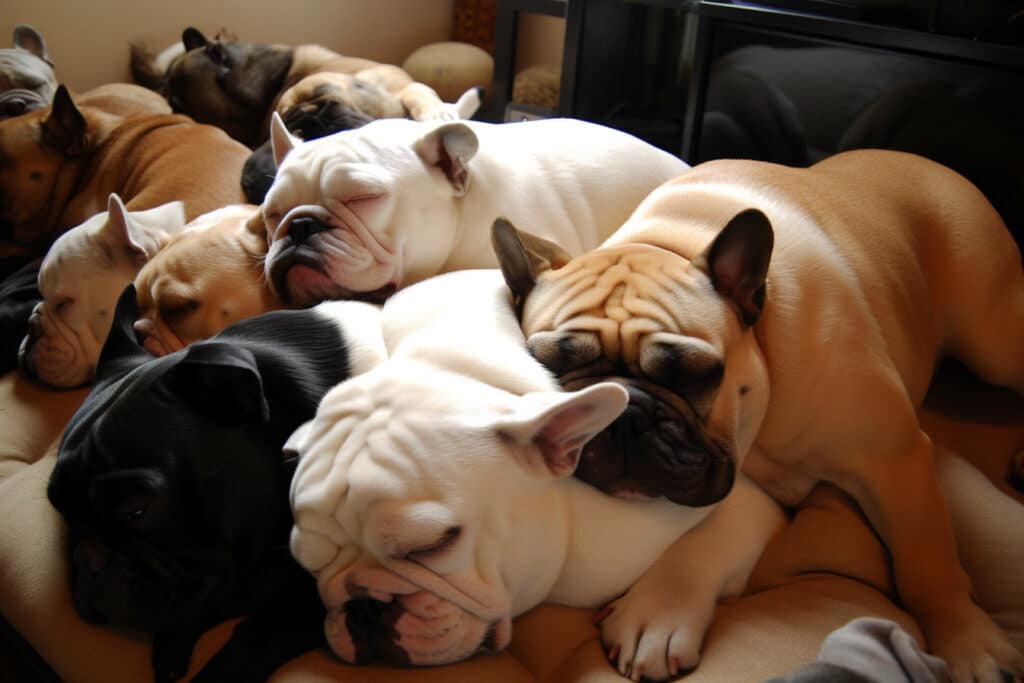
It is crucial for pet owners with a service-oriented mindset to prioritize their canine companion's well-being by addressing any potential health concerns associated with dog snoring. Breathing issues caused by various factors can negatively affect a dog's quality of life, causing them discomfort or even distress during rest periods.
Ensuring that your pup maintains a healthy weight through regular exercise and proper nutrition will help alleviate some of these problems related to excess fat accumulation. Furthermore, consulting with a veterinarian about possible causes and solutions for persistent snoring is essential in providing your beloved pet the care they deserve.
By taking these steps, you're not only helping improve your dog's overall health but also strengthening the bond between you both as devoted companions working together towards optimal wellness.
Thoughts
It's essential to be aware of the dog breeds that are prone to snoring and understand the various factors contributing to this issue.
I cannot stress enough how important it is for pet owners to recognize any warning signs that could signal trouble with their furry companion's health.
Remember, prevention is better than cure.
As responsible pet parents, we must make an effort to implement lifestyle changes and seek effective solutions to help alleviate our dog's snoring issues.
This not only improves your beloved canine's overall quality of life but also ensures they enjoy restful sleep – something every creature deserves!
After all, ‘let sleeping dogs lie' takes on a whole new meaning when you have a snoring pup in your home.
Lastly, never underestimate the impact of snoring on your dog's overall health.
Ignoring such issues can lead to complications down the road.
It is our job as loving caretakers to ensure we provide them with a comfortable environment where they can thrive without unnecessary disturbances like relentless night-time noises keeping them awake.
FAQs
Can fungal infections cause dog snoring?
Yes, fungal infections can contribute to dog snoring. Infections in a dog's nose or nasal cavity may lead to inflammation and nasal discharge, obstructing air movement and causing snoring. It's essential to consult a veterinarian if you suspect a fungal infection in your best friend.
How does second-hand smoke affect dog snoring?
Second-hand smoke has a significant impact on dog snoring. Exposure to smoke can irritate a dog's throat and airways, leading to inflammation and excess tissues in the back of the throat. This can obstruct air movement, resulting in dog snoring. To maintain a healthy dog, it's crucial to avoid smoking around your pet.
Can a foreign object or abscessed tooth cause dog snoring?
Indeed, a foreign object lodged in a dog's throat or nasal cavity or an abscessed tooth can lead to dog snoring. Both can obstruct air movement and affect a dog's breathing, causing snoring. If you notice a runny nose or unusual behavior, consult your veterinarian for proper diagnosis and treatment.
Are obese dogs with a shorter snout more prone to dog snoring?
The short answer is yes. Obese dogs with a shorter snout are more susceptible to dog snoring. Extra fat around a dog's body, particularly in the throat, can put pressure on the dog's airways, obstructing air movement and leading to snoring. Ensuring your dog maintains a healthy weight and addressing issues like kennel cough can help minimize dog snoring
